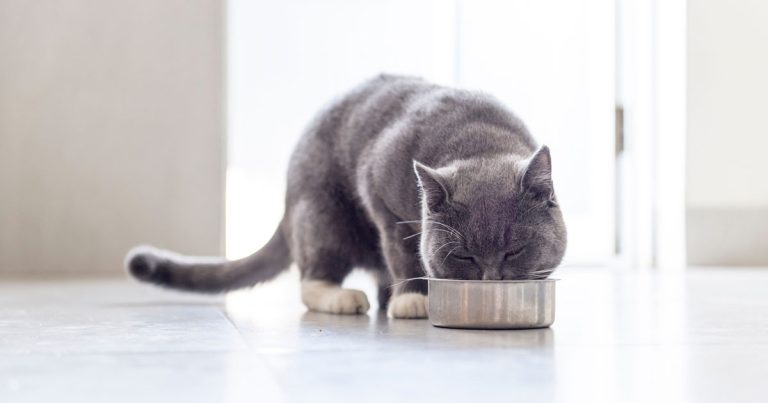25 Sept 2023
Researchers at the University of Winchester said the findings, based on both owner and veterinary assessments, have “exciting” implications for both feline health and wider sustainability considerations.

Image: © chendongshan / Adobe Stock
Cats fed vegan diets tend to be healthier and experience fewer illnesses than their meat-eating counterparts, a newly published study has claimed.
Researchers at the University of Winchester said the findings, which are based on both owner and veterinary assessments, have “exciting” implications for both feline health and wider sustainability considerations.
However, while work on its own review continues, the BVA has urged owners who are contemplating a new diet for their pet to seek veterinary advice first.
The study, which has now been published in the Plos One journal, looked at a total of 1,369 cats that were fed either meat-based or vegan diets for at least a year. The vast majority (91%; 1,242) were said to be on meat-based programmes, with 9% on vegan alternatives.
The analysis found that vegan-fed cats were almost 55% less likely to be on a special therapeutic diet than the meat-eating cats, 14.9% less likely to be on medication and 7.3% less likely to be taken to a vet.
The likelihood of owners believing their cats had a more severe illness (22.6%) and veterinary assessment of cats either being unwell or having a more serious illness (3.6%; 7.6%) were also found to be lower among the vegan group.
Although none of the reductions were found to be statistically significant, lead author Andrew Knight argued they collectively showed a “clear and consistent” trend.
He said: “It indicates that pet food manufacturers are now designing and creating vegan pet foods to include all necessary nutrients, but with fewer of the dietary hazards that are prevalent within meat-based pet foods.
“Cats consuming vegan diets have better health outcomes, as a result.
“This offers exciting potential to improve not only feline health, but also to address the very significant environmental impacts of the livestock sector created through pet food production.”
He added: “However, to safeguard the health of our feline friends, it is important that pet guardians feed only commercial vegan pet foods labelled as nutritionally complete, produced by reputable companies with good standards.”
The study, which follows similar analysis of a cohort of around 2,500 dogs published last year, further found that 15 out of 22 specific health disorder indicators were more commonly observed among meat-fed cats than the vegan group, based on reported veterinary assessments of 988 animals.
Cancer or tumours and heart diseases were among those with a higher percentage of meat-fed cases, along with dental, gastrointestinal, skin or coat, hormonal and mobility issues.
However, behavioural issues were found to be more common among the vegan-fed cats, together with lower urinary tract, kidney and ear problems.
Meanwhile, the proportion of cats that suffered from at least one of the assessed disorders was slightly higher among meat-eating cats than the vegan group (42%; 37%).
The paper acknowledged that laboratory results or clinical examinations by vets would be likely to provide more reliable data than owner-based assessments, but warned that would only be possible with sufficient funding being made available to researchers.
It added that “when large animal numbers are involved, as is necessary for statistical validity of results, such studies become expensive. Unfortunately, such studies were well beyond our research budget”.
But the findings are likely to reinforce calls for a permanent change of diet policy within veterinary sector groups such as the BVA, which has expressed long-standing reservations about non-traditional diet approaches.
Analysis by a working group, which the association confirmed it had set up in the spring to look into the issue, is said to be ongoing.
Senior vice-president Justine Shotton said: “There is increasing interest among pet owners around alternative diets for pets, and while there is a lot of ongoing research into the impacts of vegan diets in particular, there has been a lack of robust data mapping the health consequences of this diet over time.
“In light of ongoing research, the BVA recently convened a companion animal feeding working group, which will inform our recommendations going forward.
“In the meantime, owners should speak to their vet if they are considering changing their pet’s diet.”